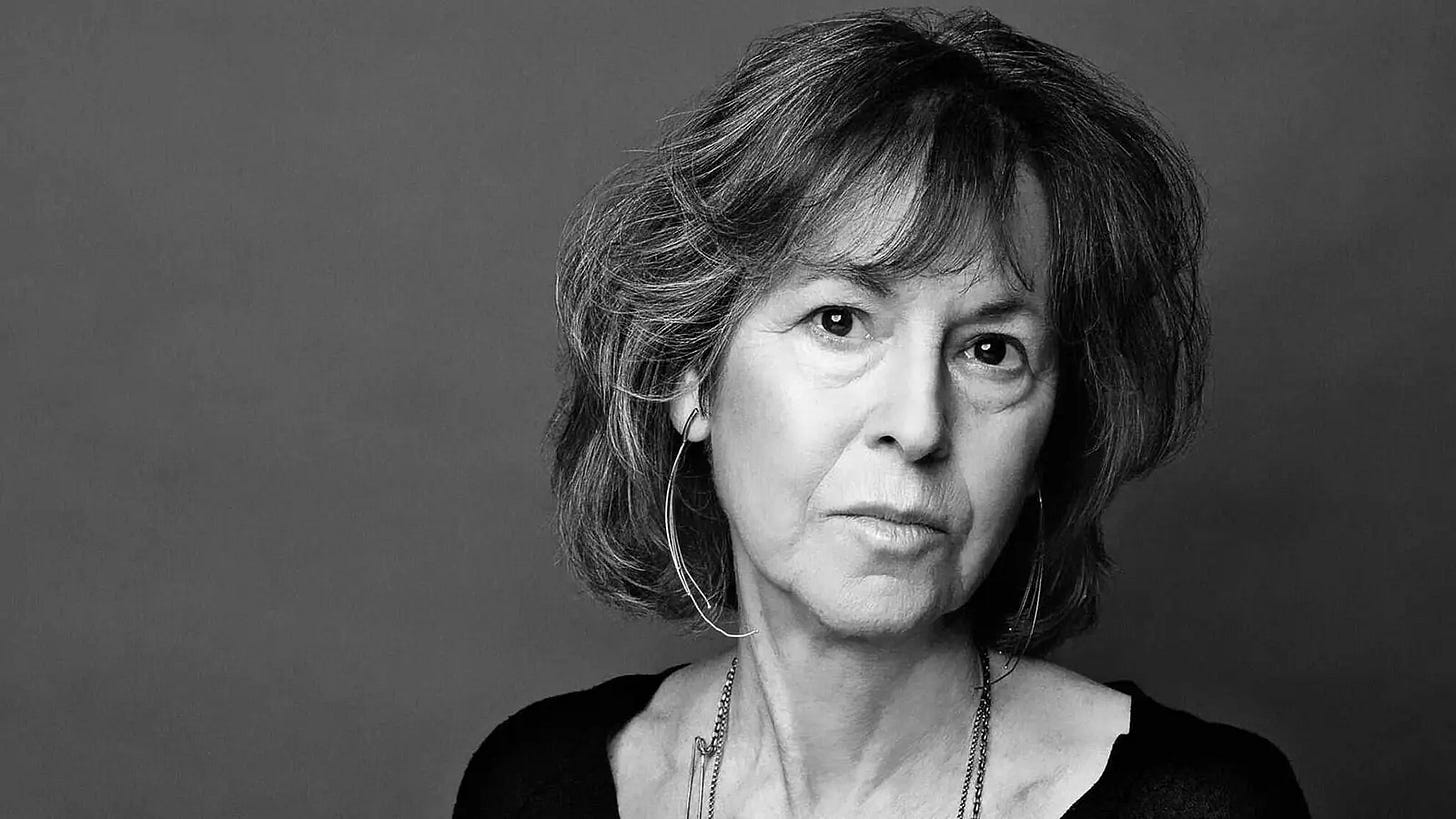Louise Glück - Harvest
It grieves me to think of you in the past— Look at you, blindly clinging to earth as though it were the vineyards of heaven while the fields go up in flames around you— Ah, little ones, how unsubtle you are: it is at once the gift and the torment. If what you fear in death is punishment beyond this, you need not fear death: how many times must I destroy my own creation to teach you this is your punishment: with one gesture I established you in time and in paradise.
Louise Glück won a Nobel prize in 2020. She was the US Poet Laureate in 2003. But she won my heart in 2002. I didn’t care that she was more than 40 years my senior. I read Wild Iris and I lost it.
It’s hard to single out a poem from any of her collections because they are poems within a larger poem. The design of the collection itself is poetry. If you’ve never read Wild Iris, or if you’ve only read a couple of pieces online, you are really missing out. I could write an essay on this collection alone. The book is a conversation between 3 voices — nature (through flowers), humanity (through the gardener) and a god-like figure. Harvest is a piece from the perspective of the latter.
The opening line sets the tone immediately, giving us a speaker who is contradictory and possibly even intentionally misleading. “It grieves me to think of you in the past—” Our past to this god figure is our soul prior to life. Life is supposed to be a gift, but this god mourns our time before experiencing it. Indeed, we are “blindly clinging to earth,” never thinking of the time before or what might have brought us here. We want this world and this life despite the pain that comes along with it, ignoring that “fields go up in flames around you.”
These first four lines seemingly imply that our love for Earth is a mistake. The speaker doubles down by saying “if what you fear in death / is punishment beyond this, you need not/ fear death.” That enjambment is excellent. Our god creature, who grieves our pre-human state and looks down on us for our love of life, is seemingly telling us not to fear death. But the linebreak contradicts the sentiment. Maybe we should fear death. Maybe there is something we are missing. Maybe the grieving is not for what was lost, but for what was experienced before.
The god character then asks rhetorically “How many times must I destroy my own creation / to teach you / this is your punishment.” This phrasing is interesting. How many times have we already been destroyed? Is this the grieving? For the destruction of whatever we were before? We are introduced to a second role for this god character - a destroyer actively choosing to annihilate what they create. Perhaps, the,. the end of our past — our pre-life existence — was an experience of destruction of sorts.
The god then declares the punishment is “I establish you/ in time and in paradise,” again seemingly contradictory. Is this life now paradise? This was the punishment before. God has become an unreliable narrator. This poem firmly reflects the paradoxical nature of life as both a gift and a burden. Both our reward and our punishment. It forces us to reexamine a line at the near center of the poem: “it is at once the gift and the torment.” Yeah, that seems about right.





